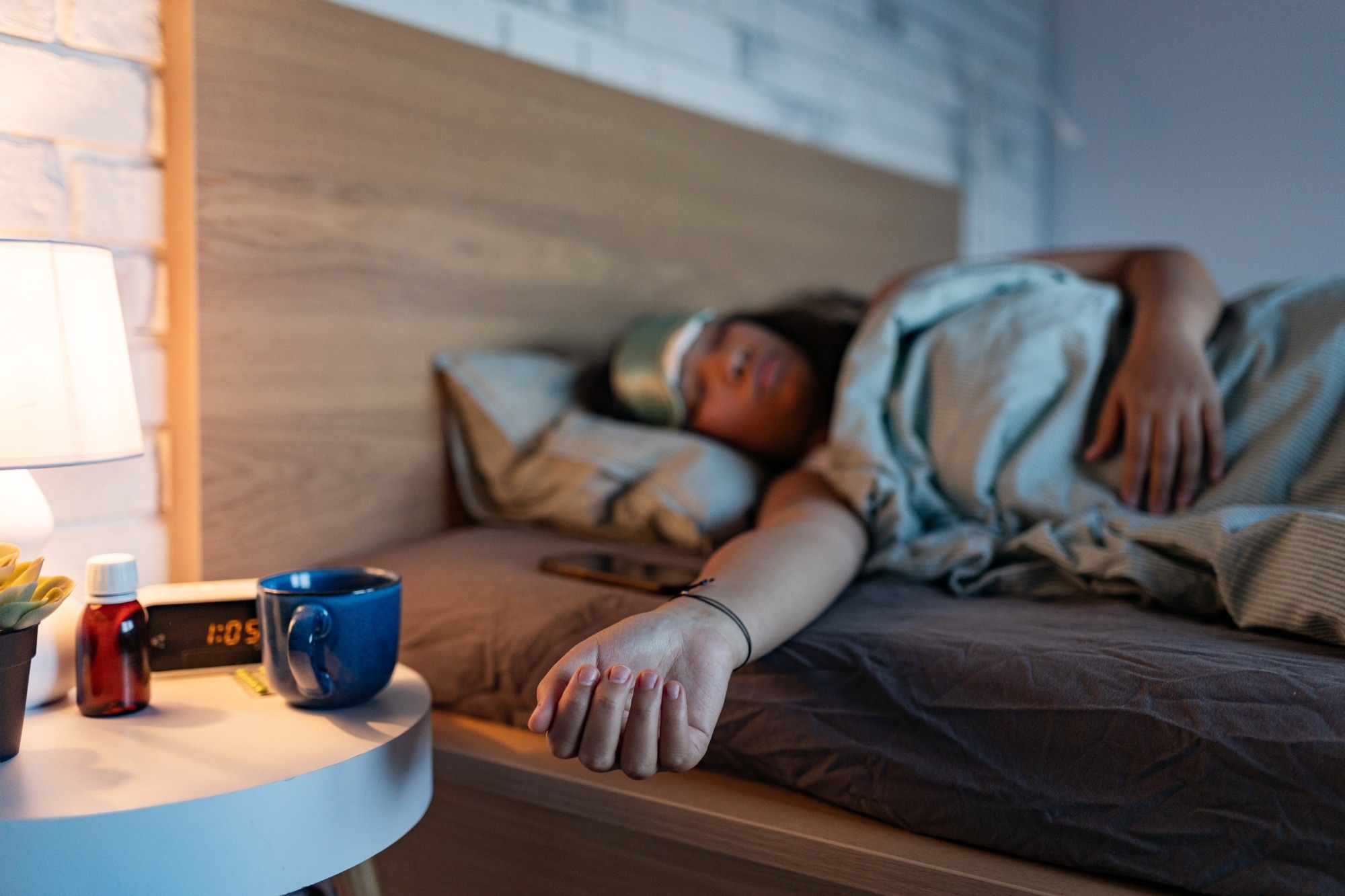In this guide, we’ll look at why magnesium glycinate might be better than other options, how it compares to other popular sleep aids, what the research says about its effect on sleep, and how to choose the best brand.
Why Magnesium Matters for Sleep
Magnesium plays a vital role in over 300 enzymatic processes in the body—including those involved in sleep regulation. It helps calm the nervous system by regulating neurotransmitters like GABA, which is essential for promoting sleep and reducing anxiety.
Yet according to national surveys, about 48% of Americans don’t get enough magnesium from diet alone—making deficiency a hidden contributor to poor sleep for many people.
Symptoms of low magnesium can include:
- Restlessness at night
- Muscle cramps
- Trouble falling asleep
- Waking up frequently during the night
- Heightened anxiety or stress response
Research has also linked magnesium deficiency to increased levels of anxiety, which in turn can disrupt healthy sleep patterns. Supplementing with magnesium glycinate may help manage both anxiety and insomnia simultaneously.
Source: NIH Office of Dietary Supplements – Magnesium
Magnesium vs. Melatonin (and Other Sleep Aids)
Melatonin is a hormone naturally produced by the body to regulate your sleep-wake cycle. While melatonin supplements can be helpful for jet lag or resetting circadian rhythms, many users report feeling groggy or “hungover” the next morning. It’s also not ideal for long-term use.
Magnesium glycinate, on the other hand, works by relaxing the muscles and calming the nervous system. It doesn’t artificially induce sleep—it helps the body naturally settle down. That’s why many users prefer it: it promotes relaxation without knocking you out or causing grogginess the next day.
Compared to valerian root and prescription sleep aids (like benzodiazepines), magnesium has fewer side effects and a lower risk of dependence.
Can Magnesium Glycinate Improve Sleep Scores?
Several small studies suggest that magnesium supplementation can lead to better sleep quality:
- A 2012 randomized clinical trial found that elderly adults who took magnesium slept longer and had fewer nighttime awakenings than those who took a placebo.
Source: Journal of Research in Medical Sciences - Another study showed that magnesium improved sleep efficiency and reduced the time it took to fall asleep in people with insomnia.
Source: Nutrients Journal, 2017
While individual results vary, many users have reported improved sleep scores (e.g., from wearable sleep trackers) after incorporating magnesium glycinate into their bedtime routine.
The 5 Best Magnesium Glycinate Brands for Sleep (According to Users)
We analyzed Reddit threads, ingredient lists, third-party testing, and user reviews to evaluate the top magnesium glycinate supplements. Here’s what stood out from the list:
1. Klaire Labs Magnesium Glycinate Complex
- Dosage: 100mg elemental magnesium per capsule
- What Stood Out: No fillers, hypoallergenic, great for sensitive stomachs
- Form: Buffered glycinate for better absorption
2. Doctor's Best High Absorption Magnesium Glycinate
- Dosage: 100mg per tablet
- What Stood Out: Patented chelated form for high bioavailability, budget-friendly
3. Thorne Research Magnesium Bisglycinate Powder
- Dosage: 200mg per scoop
- What Stood Out: Easy to mix, great taste, ideal for people who prefer powder over pills
4. Pure Encapsulations Magnesium (Glycinate)
- Dosage: 120mg per capsule
- What Stood Out: Trusted clinical-grade brand, tested for contaminants
5. NOW Foods Magnesium Glycinate
- Dosage: 200mg per 2-tablet serving
- What Stood Out: Widely available, good value, solid user reviews
All of these brands use magnesium in the glycinate (or bisglycinate) form—known for being gentle on the stomach and well-absorbed by the body.
Tips for Getting the Most Out of Magnesium for Sleep
- Take it 1–2 hours before bed for best results.
- Pair it with good sleep hygiene: a dark room, no screens, and a wind-down routine.
- Be consistent: It can take a week or more to notice effects.
- Start low: Begin with a lower dose (100–200mg) to assess tolerance.
Final Thoughts
If you’re not sleeping well and melatonin or prescription meds aren’t the right fit, magnesium glycinate may be the natural, non-groggy solution you’ve been looking for. With solid research, strong anecdotal backing, and minimal side effects, it’s no wonder more people are giving this mineral a second look.
References:



🔗 Reddit Threads Referenced
- r/Supplements – What is the best magnesium glycinate?
👉 https://www.reddit.com/r/Supplements/comments/1icnnql/what_is_the_best_magnesium_glycinate/ - r/SupplementQuest – Best magnesium glycinate recommended by Reddit
👉 https://www.reddit.com/r/SupplementQuest/comments/16g8dax/best_magnesium_glycinate_recommended_by_reddit/ - r/sleep – Which magnesium is best for sleep?
👉 https://www.reddit.com/r/sleep/comments/19eefnp/which_magnesium_is_best_for_sleep/ - r/insomnia – What's your magnesium type, dosage and brand for sleep?
👉 https://www.reddit.com/r/insomnia/comments/1ckayol/whats_your_magnesium_type_dosage_and_brand_for/ - r/Supplements – Best magnesium for sleep that doesn’t wreck your stomach
👉 https://www.reddit.com/r/Supplements/comments/1kkua5k/best_magnesium_for_sleep_that_doesnt_wreck_your/ - r/adhdwomen – Magnesium glycinate, wow!
👉 https://www.reddit.com/r/adhdwomen/comments/1gv2eed/magnesium_glycinate_wow/ - r/SupplementQuest – Best pure magnesium glycinate powder brands?
👉 https://www.reddit.com/r/SupplementQuest/comments/16uvcw6/best_pure_magnesium_glycinate_powder_brands/ - r/Supplements – Best clean magnesium glycinate (no junk)?
👉 https://www.reddit.com/r/Supplements/comments/17sn7fe/best_clean_magnesium_glycinate_no_added_junk_and/




